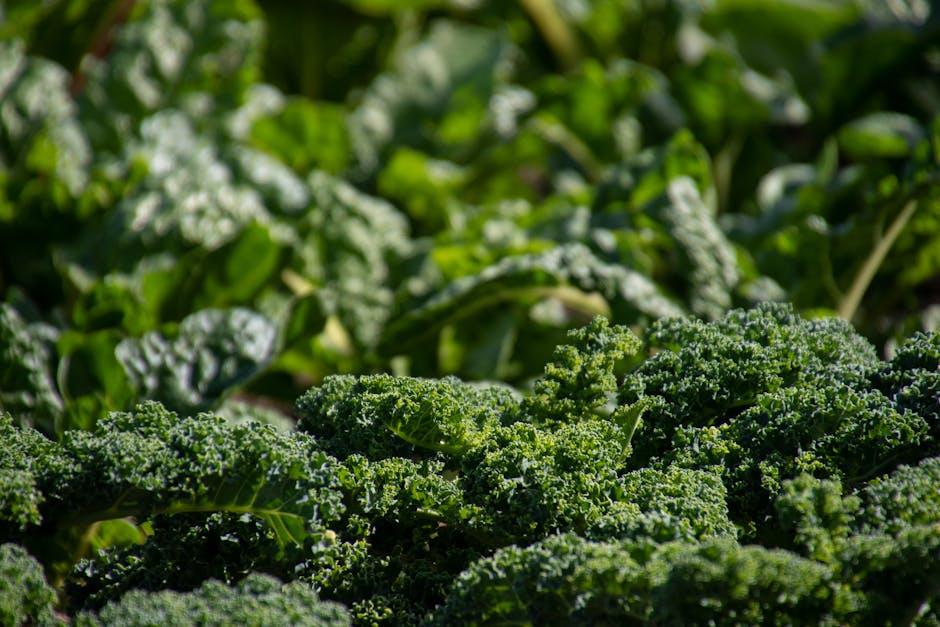In the bustling aisles of grocery stores and vibrant stalls of farmers’ markets, the allure of organic food beckons with promises of purity and health. Laden with labels proclaiming freedom from pesticides and genetic modifications, these products seem to offer a sanctuary for the health-conscious consumer. Yet, beneath the verdant veneer of organic produce lies a question that has sparked debates among nutritionists, environmentalists, and everyday shoppers alike: Is organic food truly better for our overall health? As we peel back the layers of marketing and delve into scientific studies, this article seeks to unravel the truth behind the organic label, exploring its impact on our bodies and the environment. Join us on this journey as we sift through the soil of evidence, cultivating a deeper understanding of what it means to eat organically.
The Nutritional Edge: Examining the Health Benefits of Organic Produce
Organic produce has increasingly become a staple for those seeking a healthier lifestyle. This shift is not just a trend but a response to the growing awareness of the potential benefits that come with consuming organic foods. One of the key aspects that sets organic produce apart is its cultivation process, which shuns synthetic pesticides and fertilizers. This method not only aids in preserving the nutritional integrity of the produce but also reduces exposure to harmful chemicals.
Several health benefits are often associated with organic foods, including:
- Higher Antioxidant Content: Studies suggest that organic fruits and vegetables may contain higher levels of antioxidants, which are crucial in protecting the body from oxidative stress.
- Fewer Pesticide Residues: While conventional produce is often laden with chemical residues, organic options generally have fewer, if any, of these potentially harmful substances.
- Potentially Higher Nutrient Levels: Some research indicates that organic produce may have higher concentrations of certain nutrients, such as vitamin C, iron, and magnesium.
Pesticides and Preservatives: Understanding the Chemical Differences
When delving into the realm of chemical additives in our food, it’s crucial to differentiate between the roles of pesticides and preservatives. Pesticides are primarily employed during the agricultural phase, designed to ward off pests and diseases that threaten crops. Their use ensures a higher yield and quality of produce, albeit raising concerns about potential health risks when residues remain on food. In contrast, preservatives are added post-harvest to extend the shelf life of products. These chemicals play a pivotal role in maintaining food safety and preventing spoilage, but they too have sparked debates over their long-term effects on health.
Understanding these distinctions is essential when considering the merits of organic food, which often touts reduced exposure to such chemicals. Key differences between pesticides and preservatives include:
- Purpose: Pesticides are used for protection during growth, while preservatives are used for longevity after harvest.
- Application timing: Pesticides are applied in the field; preservatives are added during processing.
- Health concerns: Both have potential health implications, but the nature and extent differ based on usage and exposure levels.

Sustainability and Soil: How Organic Farming Impacts Health
Organic farming stands as a beacon of sustainability, offering a symbiotic relationship between the soil and our health. This farming method emphasizes the use of natural processes and inputs, which can lead to a healthier ecosystem and potentially healthier produce. The soil is a living entity, teeming with microorganisms that contribute to its fertility and structure. Organic practices, such as crop rotation and composting, nurture these organisms, leading to improved soil health and, in turn, more nutrient-dense crops.
Several factors contribute to the potential health benefits of organic food, including:
- Reduced Exposure to Pesticides: Organic farming limits the use of synthetic pesticides, which can result in lower residues on produce.
- Higher Nutrient Content: Studies suggest that organic produce can contain higher levels of certain antioxidants and vitamins.
- Environmental Impact: By promoting biodiversity and reducing chemical runoff, organic farming supports a healthier planet, which indirectly benefits human health.

Making the Switch: Practical Tips for Incorporating Organic Foods
Transitioning to an organic lifestyle doesn’t have to be overwhelming. Begin by identifying which foods are most important to buy organic. Prioritize items like fruits and vegetables that you consume regularly and are known for higher pesticide residues, such as apples, strawberries, and spinach. Consider the Dirty Dozen list as a guide for which produce to prioritize.
To ease into this change, explore local farmers’ markets or organic food co-ops. These often offer fresh, seasonal produce at competitive prices. Experiment with incorporating organic grains and legumes into your meals, which can be a budget-friendly way to maintain variety. Additionally, don’t forget about the power of home gardening. Growing your own herbs or vegetables can be a rewarding way to ensure the freshness and quality of your food. Embrace these small changes, and you’ll find that incorporating organic foods can be a natural and enjoyable part of your routine.
